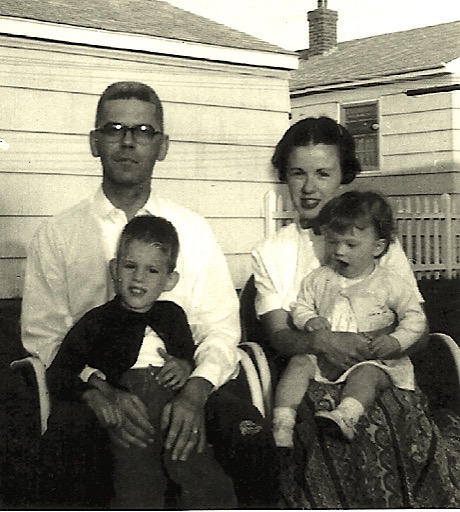Dear readers: In Turkey I often observed nostalgia, anxiety, and uncertainty about the future, sentiments also common to Americans. So I thought you might enjoy this story about my family of origin.
I have only a few vivid memories of my quiet, retiring father. But one stands out because it occurred regularly. Every Saturday night in the seventies, he, along my mother and any of his three kids who were home, sat down and watched All In The Family.
Dad had also enjoyed The Honeymooners, with Jackie Gleason. He loved down- to-earth humor. But All In The Family was written as a social commentary and had a more overt message. A favor Archie did for a neighbor exposed his racism. An episode with slapstick jokes about diarrhea ended up pointing out women’s subservience to men.
Perhaps Dad could laugh at All in the Family’s barbs because his wife was content and his kids were obedient and conservative. And his job was white collar; I don’t think he felt the vulnerability hinted at in the show’s theme song: “Guys like us, we had it made. Those were the days.”
But he was vulnerable. In the summer of 1975, his employer, State Farm Insurance, demoted him, moving him from Divisional Claims Superintendent down to Claims Superintendent.
The son of a struggling small town newspaper publisher, Dad had worked his way through college and law school during the Depression, and he never lost his amazement at the miracle of a regular paycheck. He’d had that stability in the navy, and would have reenlisted in 1945 if State Farm hadn’t offered him a job. State Farm had also been a good employer and Dad, if not a wunderkind, was promoted regularly.
Dad brooded about his loss, but his brooding didn’t look much different from his normal demeanor. He stood a little longer in the kitchen near the sink, alternately sipping coffee and drawing on his pipe. He sat for long periods in the living room, The Pioneer Press beside instead of in front of him, looking sorrowfully off into the distance.
The one time I recall my dad, actually both of my parents, riled up was after attending a freshman orientation meeting at Macalester with my older brother, Dave. The year was 1969, and my parents came home (as I recall, they got out of the car and came immediately to the dinner table where I served heated-up chili) shocked at the peace symbols, the End the War signs, and the shaggy haircuts on male students. “I don’t know if these young people have any respect for our government,” my dad started out. “Or for anything.”
“They look like girls,” my mom continued. “Don’t you decide to look like that, Dave.” Dave would attend college as a commuter, home for dinner most nights and, no, he didn’t turn into a hippie.
I felt bad about my dad’s job. He had driven us thousands of miles on family trips, paid for our expensive orthodontia, and done without to educate us. I had one year left at St. Olaf College, and I approached my mother. “I could transfer to the U. That would be less expensive.” My mother said that wouldn’t be necessary. She explained that, since Dad would now be getting a company car to drive to a satellite office, his income wouldn’t be significantly affected. I realized my dad wasn’t preoccupied by loss of salary, but loss of prestige.

In early 1979, at age 62, my dad died of a stroke. I think his demotion, which he saw as a shameful event, had crushed his self-esteem.
My dad would be 100 this year. His long-ago job dilemma now sounds quaint: after all, he was only moved down a notch. In the years since that summer, however, the years that encompass my entire adult life, companies all over American have been shedding workers. Nearly everyone I know has been laid off at least once. From the mid-seventies on, staying employed would be stressful and uncertain. And sometimes impossible.
I think back to those days, when I was on the cusp of becoming an adult. Much has been written about the “moral decline” of that era, with its anti-government protests and sexual revolution. But to me, the disintegration of trust between workers and employers was the true breakdown. All In The Family’s lyrics were prescient—and they affected more than just “guys like us.”




Sue, that your for the enlightenment about your dad, family, and the culture of the times.